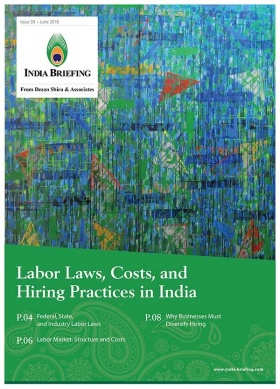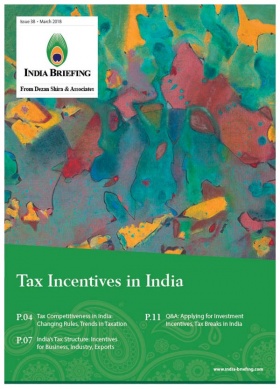India’s Presumptive Taxation Scheme: SMEs and Professionals Key Beneficiaries
Filing taxes can be a cumbersome, if not costly process, for small businesses (SMEs) and individual professionals.
To ease the burden on such taxpayers and encourage compliance, India’s income tax department has introduced the presumptive tax scheme.
The scheme allows SMEs and professionals in India to pay tax on an estimated amount of income based on the gross receipts of their business.
Consequently, they do not need to maintain books of accounts, simplifying the overall tax filing process.
Eligibility for presumptive tax scheme
To opt for the scheme, taxpayers must meet the following qualifications:
- Turnover of the business cannot exceed Rs 20 million (US$290,782); and,
- The taxpayer must be a resident of India.
Only individuals, HUF, or partnership firms can access this taxation scheme – it is not available to a company or a limited liability partnership (LLP) firm.
The presumptive tax scheme is also not available to any person receiving income from commission or brokerage, agency, or businesses in plying, hiring, or leasing of goods carriage.
Finally, taxpayers cannot use the scheme if they have claimed deductions under Sections 10, 10A, 10B, 10BA, or Sections 80HH to 80RRB of the Income-tax Act in the relevant year.
Tax provisions for businesses under Section 44AD
Under the presumptive tax scheme, according to Section 44AD of the Income-tax Act, 1961, the net taxable income is estimated to be eight percent of the gross receipts of the business in case of cash receipts, and six percent in case of digital receipts.
Tax is paid on this amount, depending on prevailing tax slabs, and annual taxes are filed through the ITR Form 4 (also known as Sugam).
Advance tax is also paid in one lump sum installment by March 15 of the current financial year; this only applies to income from the business.
However, if the tax liability of the taxpayer exceeds Rs 10,000 (US$145) from other sources, advance tax needs to be paid in quarterly installments for that income.
No business expense or depreciation on assets or deductions under Sections 30 to 38 of the Income-tax Act can be deducted from gross receipts.
However, salaries, remuneration, or interest paid to partners in the business may be claimed as deductions.
Further, if the taxpayer is running more than one business under the same PAN, all the businesses need to be registered for the presumptive tax scheme.
An eligible business can opt into the scheme at any time. However, if the business opts out of the scheme, it cannot benefit from it for the next five years.
Tax provisions for professionals under Section 44ADA
Professionals with total gross receipts not exceeding Rs 500,000 (US$7,269) can claim benefits under this scheme.
The tax will be calculated on 50 percent of the total gross receipts of the year.
The following professions are eligible to use the scheme:
- Legal;
- Medical;
- Engineering;
- Architects;
- Accountancy professionals;
- Technical consultants;
- Interior decorators;
- Other notified professionals;
- Authorized representatives;
- Film artists;
- Certain sports related persons;
- Company secretaries; and,
- Information technology professionals.
Further, the taxpayer must be a resident of India and an individual, HUF or partnership – barring LLPs.
No further deductions are allowed for professionals, and advance tax must be paid in quarterly installments where applicable.
Professionals can also opt in or out of the presumptive tax scheme without being prohibited from using the same for the next financial year.
About Us
India Briefing is produced by Dezan Shira & Associates. The firm assists foreign investors throughout Asia and maintains offices in China, Hong Kong, Indonesia, Singapore, Vietnam, and Russia.
Please contact india@dezshira.com or visit our website at www.dezshira.com.
- Previous Article Brand ‘Ayurveda’ in India’s FMCG Market: Matching Consumer Preferences for Natural, Organic Products
- Next Article India, South Korea Trade and Investment Ties: Focus on CEPA, Make in India











